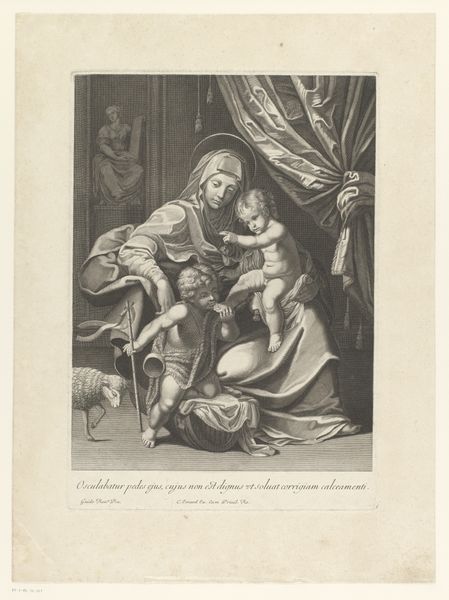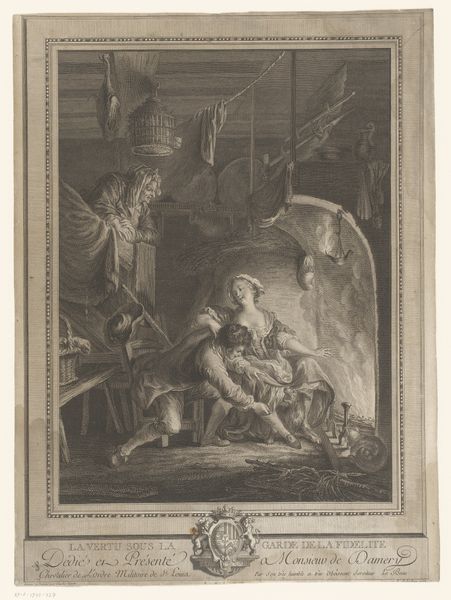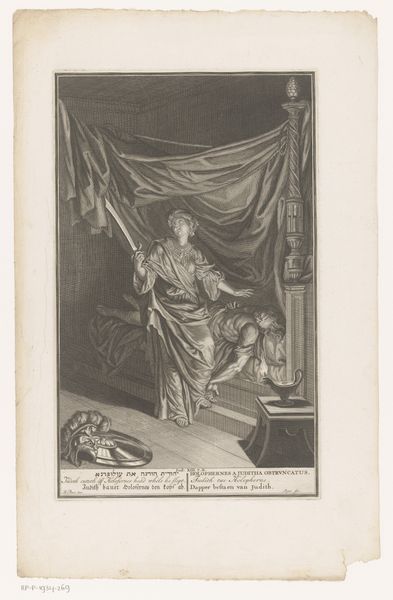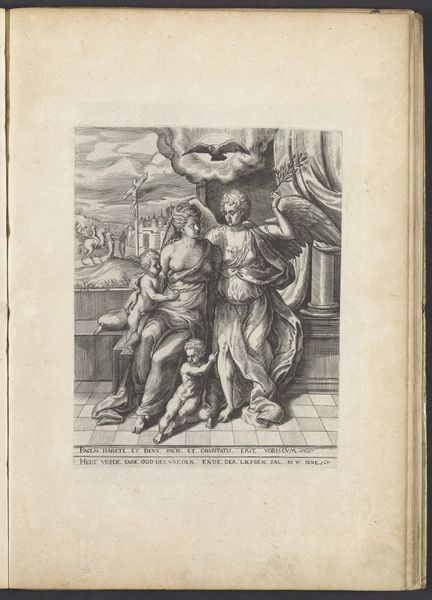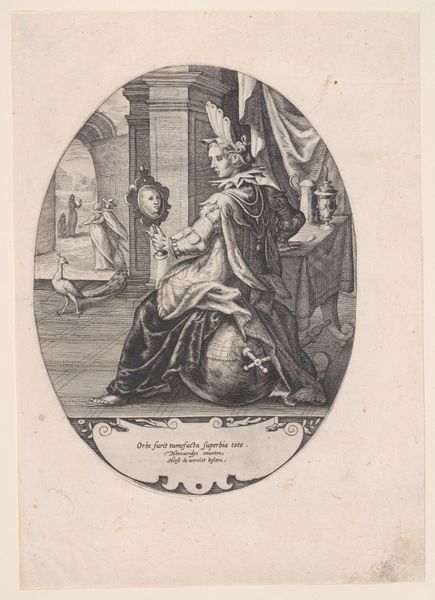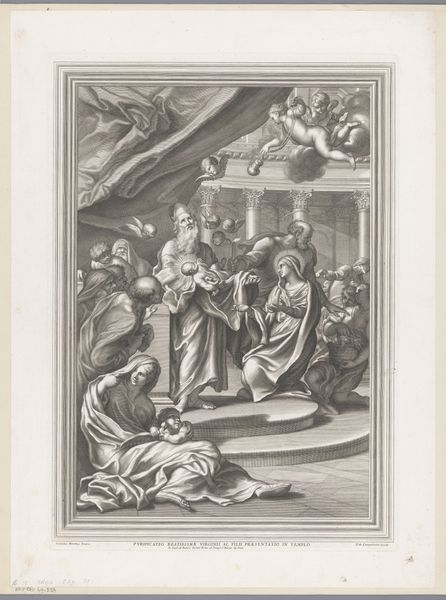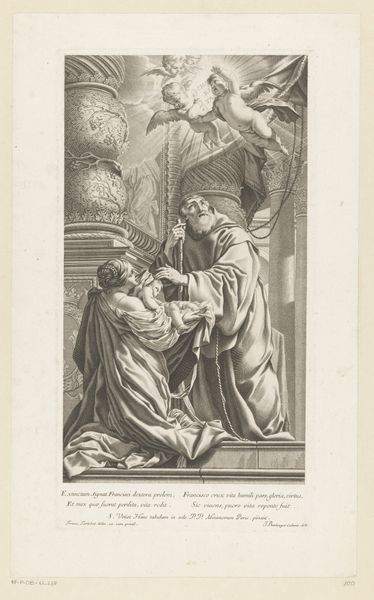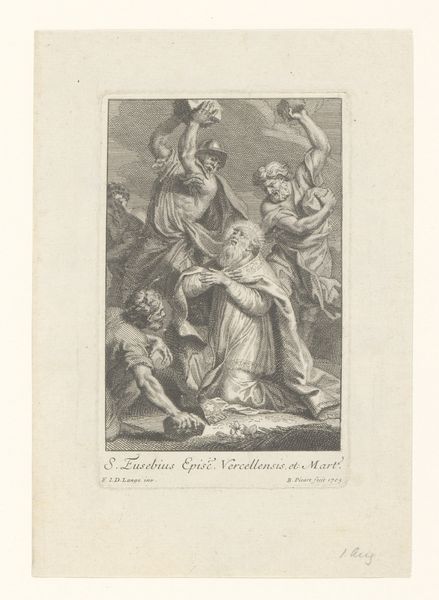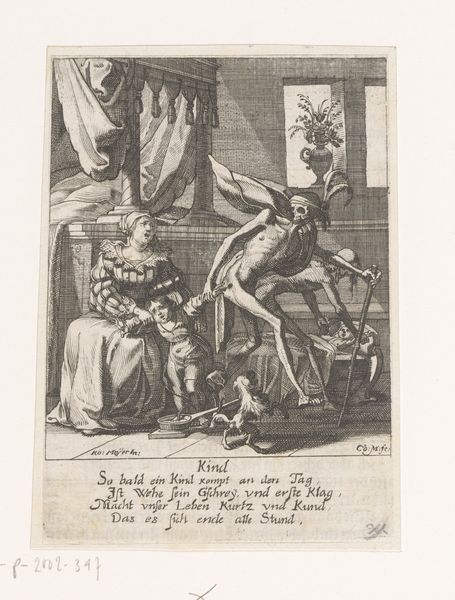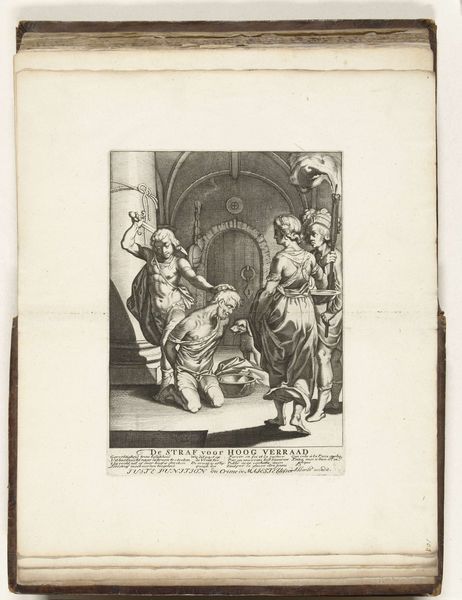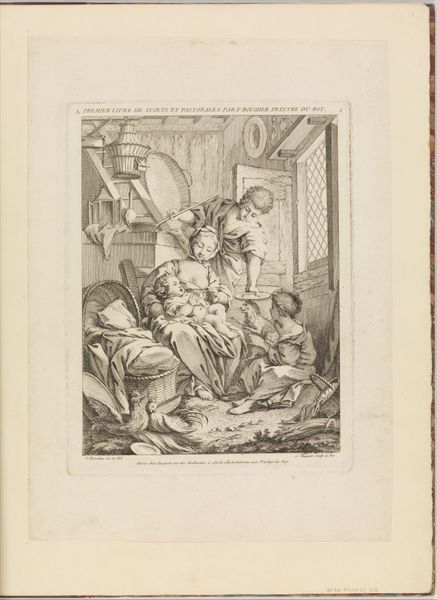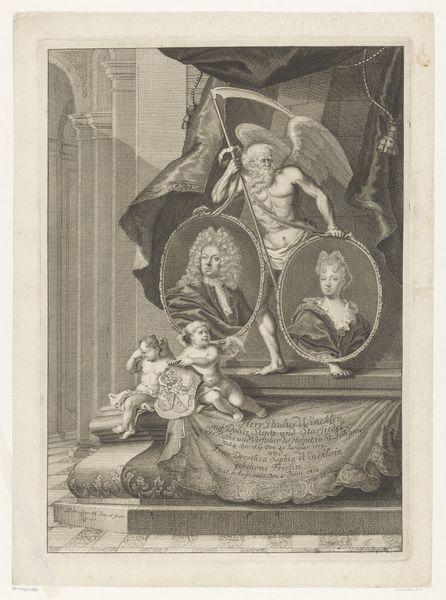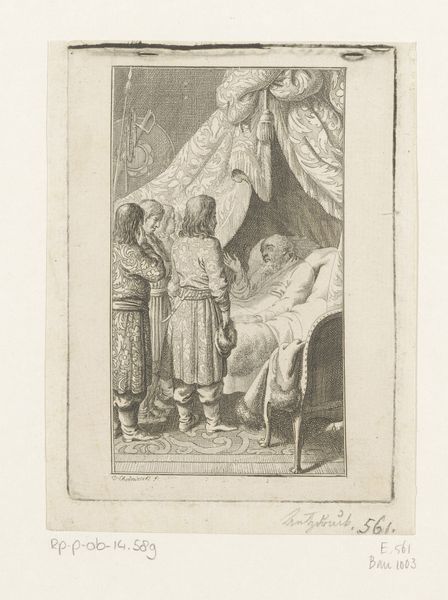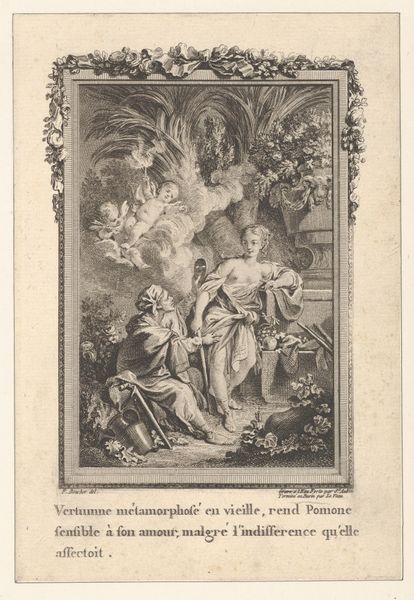
drawing, print, paper, ink, engraving
#
drawing
# print
#
figuration
#
paper
#
ink
#
line
#
history-painting
#
italian-renaissance
#
engraving
Dimensions: 248 x 164 mm (plate); 252 x 168 mm (sheet)
Copyright: Public Domain
Giulio Bonasone created this engraving of Saint Paul and the Viper in Italy in the 16th century. It depicts a scene from the Acts of the Apostles in which Paul is bitten by a viper but suffers no harm, demonstrating the power of faith. Prints like this played a crucial role in disseminating religious imagery during the Reformation. They could be reproduced cheaply and distributed widely, allowing new interpretations of scripture to circulate beyond the control of the Catholic Church. Bonasone's image draws on classical visual codes. The setting evokes ancient Roman architecture, lending authority to the scene. Yet, the dramatic pose of Saint Paul and the grotesque figure of the viper inject a dose of heightened emotion. The image speaks to the religious tensions of the time, with some artists using the classical style to reinforce traditional doctrine, and others using it to question established authority. Understanding Bonasone's print requires considering the social and religious context in which it was made. Art historians consult a range of sources, from theological treatises to records of printmaking workshops, to fully interpret the image. The meaning of this work lies in this complex interplay between artistic practice and social forces.
Comments
No comments
Be the first to comment and join the conversation on the ultimate creative platform.
